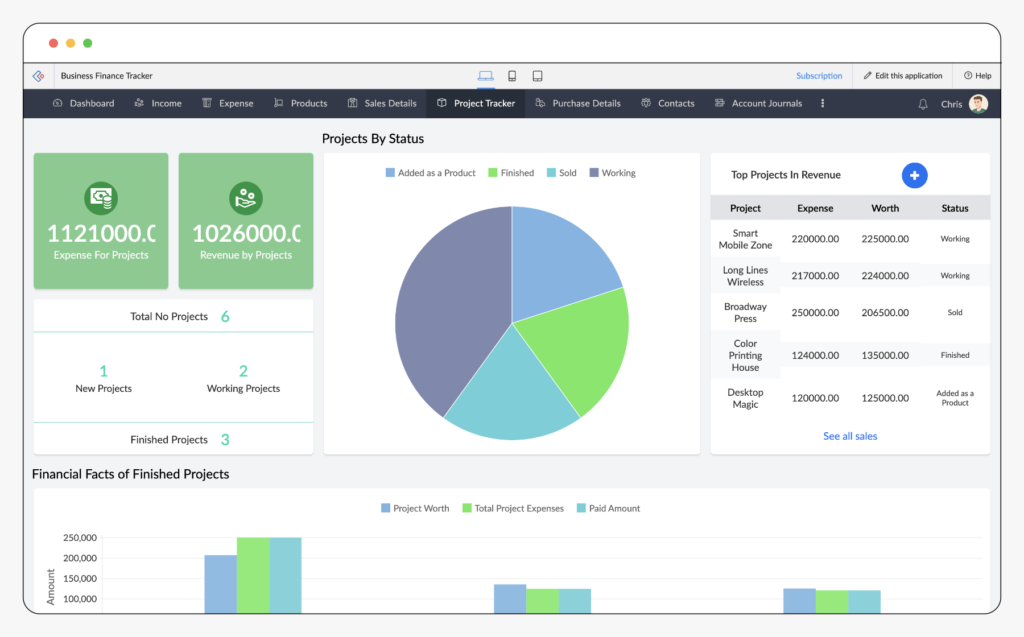- Email: info@crystalteck.com
- Location: Trichy
- Office Hours: 09:00 AM - 7:00 PM
iCrystal Finance Management
- Resource Allocation: Efficiently distributing funds and capital to meet organizational goals.
- Risk Management: Identifying and mitigating financial risks to safeguard stability.
- Performance Analysis: Evaluating financial data to gauge organizational health and effectiveness.
- Compliance and Reporting: Ensuring adherence to regulations and transparently communicating financial status.

Maximizing Finances, Optimizing Success.
Smart Finance for Growth and Stability
- Budget Management
- Financial Planning
- Risk Management
- Financial Analysis
- Allocating financial resources effectively.
- Setting financial targets and constraints.
- Monitoring and controlling expenses.
- Evaluating performance against budgetary goals.
- Developing long-term financial strategies.
- Forecasting cash flows and financial needs.
- Analyzing investment opportunities.
- Setting financial objectives and milestones.
- Identifying and assessing financial risks.
- Developing strategies to mitigate risks.
- Monitoring and managing market, credit, and operational risks.
- Ensuring compliance with regulatory requirements.
- Evaluating financial performance using ratios and metrics.
- Conducting trend analysis and variance analysis.
- Interpreting financial data to inform decision-making.
- Identifying areas for improvement and optimization.
Key Aspects of Inventory Management
Budgeting and Planning
Investment
Risk Factor
Cash Flow
Financial Analysis
Capital Structure
Pain Points
- Complexity in Budgeting: Managing budgets across various departments or projects can be intricate and time-consuming, leading to errors or oversights.
- Risk Uncertainty: Identifying and mitigating financial risks, such as market volatility or regulatory changes, can be challenging, especially without comprehensive risk management strategies.
- Data Management and Analysis: Gathering and analyzing financial data from disparate sources can be cumbersome, potentially leading to delays or inaccuracies in decision-making.
- Cash Flow Challenges: Maintaining sufficient liquidity to meet short-term obligations while optimizing cash flow for long-term growth can be a delicate balancing act, especially during periods of economic uncertainty.
- Capital Allocation Dilemmas: Determining the optimal mix of debt and equity financing for projects or investments can be complex, particularly when considering factors like cost of capital and risk tolerance.
- Compliance Burden: Keeping up with evolving regulatory requirements and ensuring compliance with accounting standards can be demanding, requiring dedicated resources and expertise.
- Reporting Complexity: Preparing accurate and timely financial reports for stakeholders, including investors and regulatory authorities, can be labor-intensive, especially when dealing with complex financial transactions or structures.
Why Finance Management?
Optimal Resource Allocation
Effective finance management ensures that financial resources are allocated efficiently, maximizing their impact on organizational goals and minimizing waste.
Risk Mitigation
By identifying, assessing, and mitigating financial risks, finance management helps protect the organization from potential losses and enhances its resilience in the face of economic uncertainties.
Informed Decision-Making
Financial data analysis provides valuable insights that enable informed decision-making across various aspects of the organization, from investments and resource allocation to pricing strategies and expansion plans.
Financial Health Monitoring
Finance management allows for the continuous monitoring of the organization's financial health, enabling early detection of potential issues and prompt corrective actions to maintain stability and sustainability.
Compliance and Transparency
Adhering to financial regulations and standards ensures compliance, enhances transparency, and builds trust with stakeholders, including investors, creditors, and regulatory authorities.
Strategic Planning and Growth
Finance management supports strategic planning by providing the financial foundation for growth initiatives, mergers and acquisitions, and other strategic endeavors that drive the organization forward.
